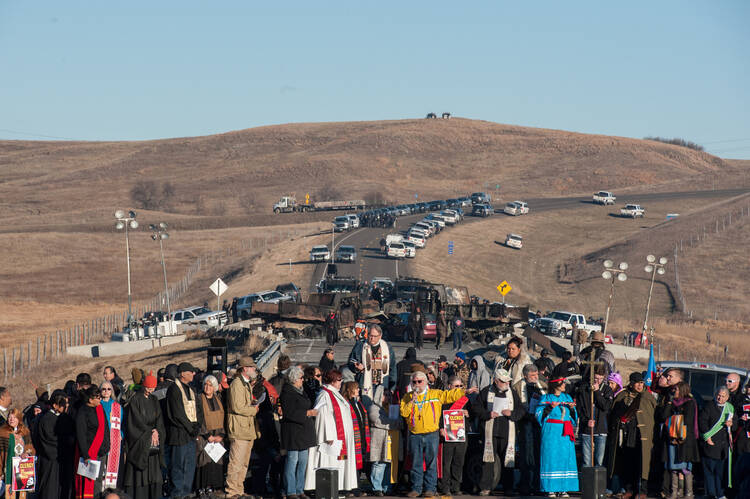Americans might be forgiven if they thought they had put the great pipeline wars behind them with the abandonment of the giant Keystone XL. Concern that the lives of U.S. citizens were likely to be disrupted in the service of a foreign oil company was among the arguments that eventually doomed Keystone. That must seem all too ironic to the members of the Standing Rock Sioux community in their months-long resistance to the $3.8 billion Dakota Access pipeline, which, they contend, is a threat to drinking water and Sioux sacred sites in its path.
President Obama’s call on Nov. 2 for the U.S. Army Corps of Engineers to revisit the pipeline route offers a welcome way out of what has become an increasingly tense confrontation. The Texas-based company Energy Transfer Partners should seize this opportunity to de-escalate the crisis. So far company officials have refused to budge so local police have to act as corporate enforcers against Sioux and other Native American protesters and environmentalists who have joined the fray.
The optics of the stand-off, pitting militarized officers in riot gear against Native Americans, could not be any worse. The sight invokes the most gruesome and unjust incidents from the past and suggests that Native American communities continue to be ignored and devalued in the present. It is hard to imagine the concerns of another sovereign state being similarly dismissed by U.S. government officials and energy producers.
The president’s intervention should also be welcomed by pipeline resisters, who could participate in practical negotiations toward a resolution of the conflict and disassociate themselves from protesters who are seeking to terminate all extraction and movement of fossil fuels.








